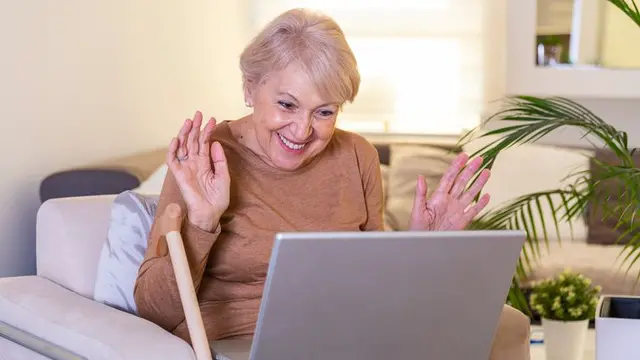Staying at home during the coronavirus outbreak can be an isolating time for many people, with some worried about how they will manage to keep in touch with family and friends without seeing them.
Video calling isone way of keeping up communication, but is it as effective as seeing someone in real life?
The good news for people under the
COVID-19
lockdown is, apparently so.
Professor Sophie Scott, Director of the Institute of Cognitive Neuroscience at University College London, told Sky News that video calling has been proven to be just as good for your brain and happiness as being in the same space.
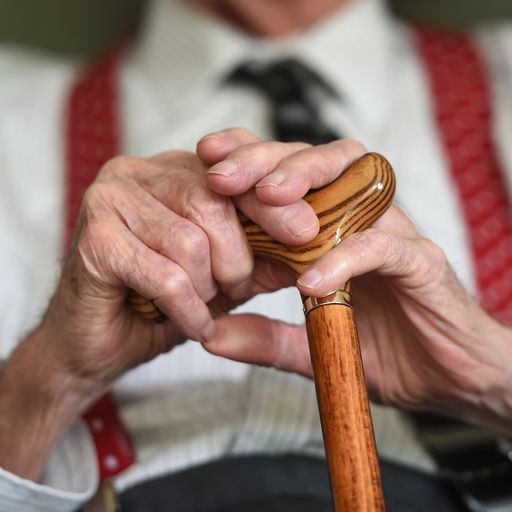
NHS Volunteer responder: What sort of tasks will I carry out?
Prof Scott said that a study by Professor Robin Dunbar at Oxford University found that "you get the same bang for your buck - you talk for as long, you are as happy and you laugh as much whether the face to face interaction is on a computer or it's actually happening in front of you."
Explaining the effect of video calling on participants, Prof Scott said people have been found to have the highest happiness levels after they see each other.
"As soon as it goes down to just voice, people aren't unhappy, but they talk for slightly less time, they laugh less, they are slightly less happy afterwards.
"This is the lowest for all for text-based conversations. Of course, no conversation would be off the scale."
But why is it so good for us to see each other?
Prof Scott suggests it comes down to our need for basic human communication signposts.
Explainer: How to self-isolate
"As soon as you have the face there, it is not only helping you improve the speech intelligibility, it is also giving you another whole channel about what the person is trying to communicate.
"Human voices are very rich and complex and nuanced and there is a huge amount of information in our voice. The same is true of our faces. Human faces are very different to those of other animals, they are extremely expressive.
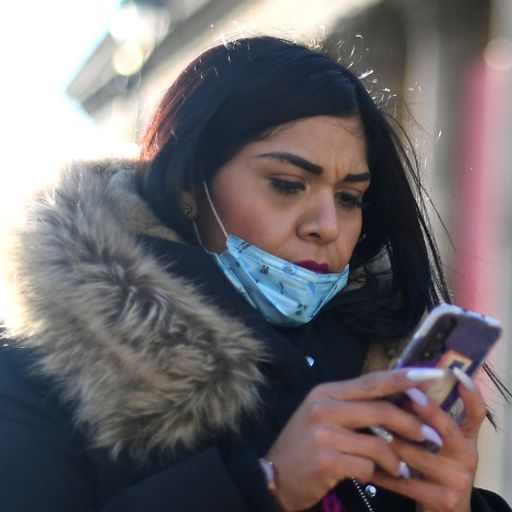
Coronavirus: How you can protect your mental health during lockdown
"Our eyes are completely unique in nature - they are the only ones in which the whites of the eyes are always visible - and that helps you know precisely where someone is looking and that is important in face to face interactions because we use our eyes to establish a link to the person we are talking to.
In recent weeks, apps which allow multiple video call participants have increased in popularity, but would Prof Scott recommend these for the most effective communication?
**:: Listen to the Daily podcast on **
Apple Podcasts
**, Google Podcasts
, Spotify
, Spreaker
.**
"Conversations aren't built to have thousands of people in - the top number of people who can comfortably have a conversation is four or five," he explains.
"If you go to a party and you start talking to someone and there is two of you, a third person joins you, you can have a conversation with three. A fourth person joins you, you can have a conversation with four, a fifth person joins, you might just be able to manage it, but if a sixth person joins, you split into two groups."
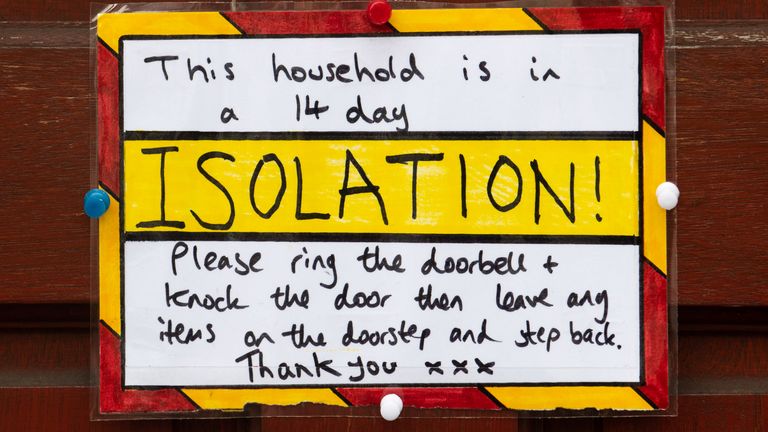
Image:A sign on the front door of a house in self-isolation in Cardiff
It's unclear if a minimum amount of communication time is needed for us to reap the benefits, but Professor Scott stresses a small amount is better than nothing.
"If you are isolated from having conversations with people, maybe through hearing loss, maybe through situations, it's bad for you. It's bad for your health, it's bad for your brain.
"There is even quite compelling evidence that says the longer someone is lonely and socially isolated, the less empathy they start to feel."
So what advice would Prof Scott offer to people who feel they are lonely?
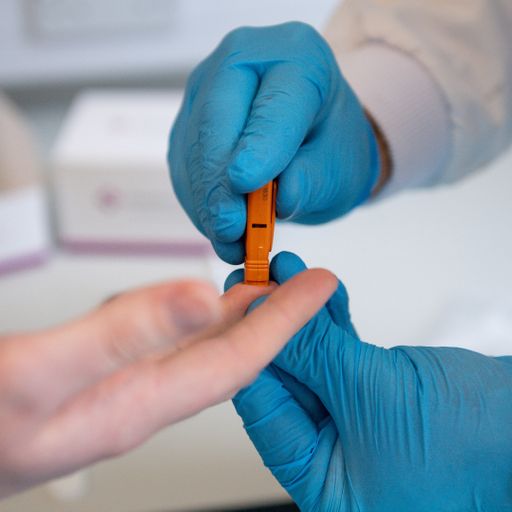
'Game changer' COVID-19 tests could be available in days
"This can be one of the situations where social media can be your friend. Remember just having a text with someone is already good.
"Have a conversation on Twitter, on Facebook, it doesn't have to be someone you know - what really matters is that you're talking to someone and someone talks back to you."
Prof Scott also points out that we need to take heart in the knowledge that we are living in a golden age for communication.
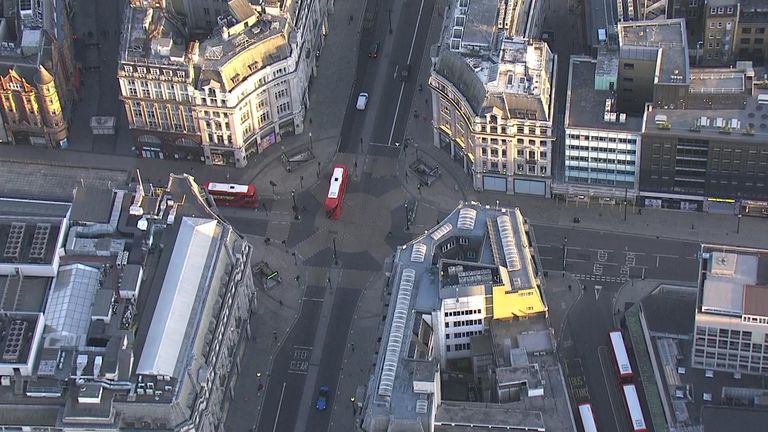
London virtually deserted at rush hour
"As horrible as it is for us all to be on lockdown if this had happened 10 years ago when there weren't easy ways of communicating face to face it would have been harder for us."
And if you're looking for a final piece good news for the future, Professor Scott offers this.
"We've got out of the habit of calling people. But I think that's going to change. Because right now it's lovely if someone spontaneously wants to speak to you. So let's embrace that again."
 简体中文
简体中文

